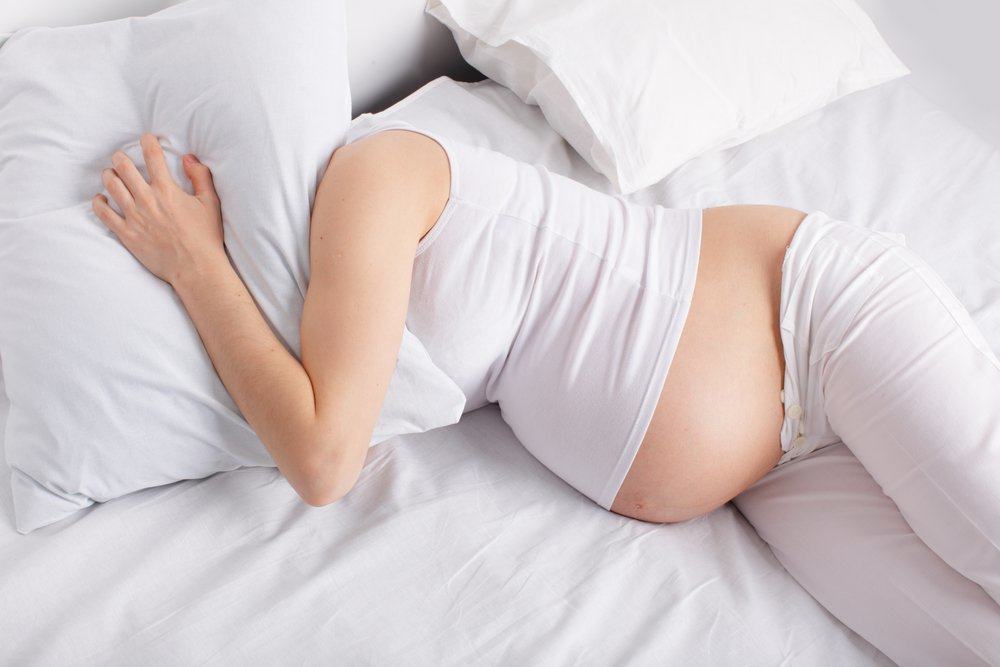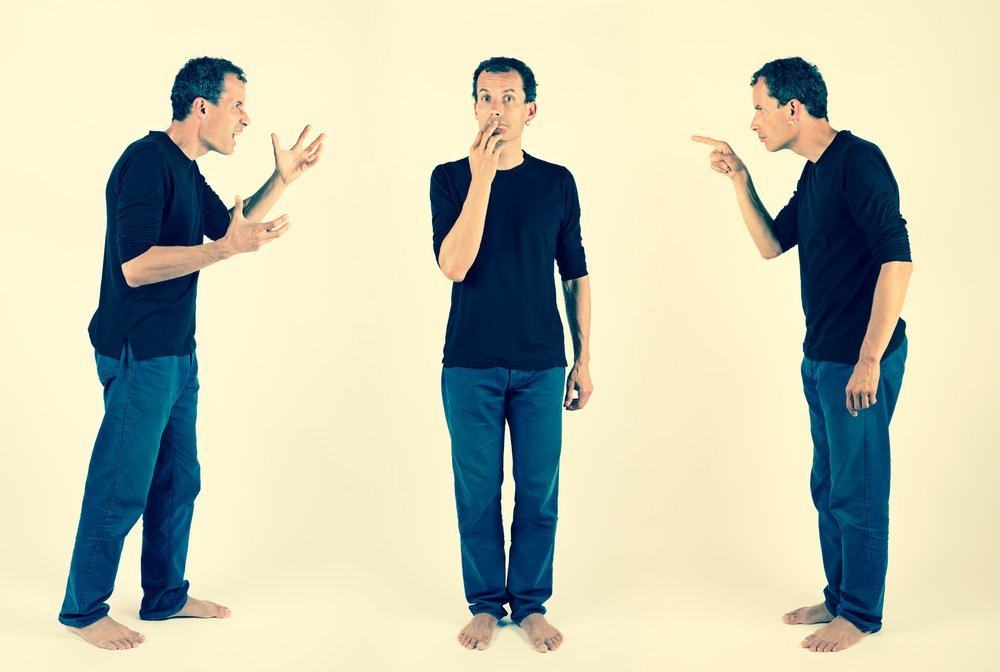Contents:
Medical Video: The Postpartum Brain: Baby Blues vs. Depression
Being a parent is a big stepping stone that is challenging, even at its best. For some people, this moment of major change will be made more difficult by a number of challenges that may await in the postpartum period, starting from the baby blues, postpartum depression (PPD), and postpartum psychosis. However, there is one unique problem suffered by a number of mothers who experience symptoms similar to postpartum depression, but do not really fit that profile. Experts argue that this is due to childbirth trauma.
How can something very common like giving birth, can create a physiological reaction in the mother, complete with insomnia, nightmares, or flashback terror? For some, it's possible.
Reporting from Today's Parentabout one third of women after childbirth show some tendenciespost traumatic stress disorder(PTSD), and three to seven percent suffer from certain symptoms of PTSD, ranging from heart palpitations, insomnia, to phobias (irrational fear of giving birth again).
Attention is always directed to a successful labor process and the well-being of a healthy baby, while sometimes, the condition of the mother is neglected.
"During childbirth, many women experience a real threat about physical damage or death for themselves or their babies," said Inbal Shlomi-Polchek, a psychiatrist and Tel Aviv study co-author. "During a painful birth, many women believe that their bodies have been torn apart or completely destroyed."
Why can someone experience childbirth trauma?
Childbirth trauma occurs as a result of trauma (or what is considered a trauma) during labor, while postpartum depression occurs because of hormonal changes in the mother's body as a natural reaction from the birth process. However, these two conditions are often linked to one another, and of course can aggravate each other. It's important to be able to distinguish between the two so you can find the most effective treatment.
The term Post Traumatic Stress Disorder (PTSD), refers to the disorder experienced by an individual after experiencing and / or witnessing a life-threatening event. We usually recognize events such as terrorist attacks, serious accidents, or acts of personal atrocity as triggering events that are capable of causing trauma, so it has proved difficult for most people to understand that a 'natural' process such as childbirth can also trigger severe trauma.
In fact, traumatic events can really be experiences involving life threat, or death, or serious injury to individuals or other people close to them (for example, their babies), for example by emergency caesarean section; normal medical intervention during childbirth that may start with induction; labor by a team of doctors who are not liked; reality of pain during childbirth; loss of self control that can occur for many women, especially those who have a history of trauma or abuse; premature babies or babies with medical problems that lead to the NICU; and infant death during childbirth, or immediately after birth. These things can happen, no matter how physically and mentally prepared the prospective mother is, as well as the medical staff concerned.
Symptoms of childbirth trauma
Women who suffer from postpartum depression (PPD) generally experience depressive moods, fatigue, insomnia, and doubts, while PTSD has different symptoms. Doctors have a list of key elements to distinguish PTSD sufferers from mothers who experience anxiety or depression, including:
- Experience one or several events that involve the threat of serious injury or death (for himself or their baby).
- Response to feelings of fear, helplessness, or horror that follows the experience.
- Terror flashbacks, nightmares, disturbing memories, and hallucinations that recur and return from time to time. He usually feels depressed, anxious, or has a panic attack when he remembers things that remind them of the event.
- Attitudes to avoid anything that reminds them of traumatic childbirth events, including talking about the trauma to avoid interacting and / or seeing their baby. Sometimes, a mother suffering from trauma may actually discuss the painful experience continuously so that they envelop them with obsession.
- Constant reminders of bad memories and the need to avoid often will result in difficulty sleeping and concentrating. Patients may also feel angry, irritable, and very alert (feeling anxious or alert all the time).
What is the impact of childbirth trauma?
There will be real consequences for mothers who experience trauma after giving birth, if they do not immediately get the needed medical assistance. Mothers with postpartum PTSD will be less likely to want to get pregnant and give birth again; they are less likely to receive follow-up medical care; they tend not to breastfeed (due to illness, feeling hurt, low milk supply, self-doubt, and lack of confidence, and / or painful reminders of childbirth); they are more likely to have the challenge of attachment to their baby (again, often because it triggers event reminders); and they are more likely to experience conflict in their marriage / other relationships, and experience sexual dysfunction. Mothers who suffer from Postpartum PTSD are also more likely to suffer from depression.
What can be done to overcome the trauma of childbirth?
We know that risk factors such as antenatal depression, lack of social support, history of previous trauma, challenges to breastfeeding, and physical challenges after childbirth can increase trauma reactions. But we also know that preventative measures such as a well-established stress management strategy, promoting mental health, such as adequate sleep, nutrition, and exercise, and the opportunity to discuss about childbirth experiences can reduce a mother's risk for PTSD. In other words, with effort, some symptoms of postpartum PTSD can be reduced.
The good news is that trauma after giving birth is temporary and treatable. The key is to get competent professional help as early as possible. It is important to treat PTSD before it starts manifesting as something difficult to deal with - such as eating disorders, addiction, compulsive behavior, chronic panic disorder, or suicidal tendencies. When in doubt, contact a health care provider for immediate assistance.
In many cases of trauma after childbirth, treatment of depression is preferred, so that their PTSD symptoms are not addressed (remember, most women with PTSD will also experience depression). If a mother is not asked the right question and if she does not tell the whole story, she may carry out treatment for a long time the desired help.
Mothers with postpartum PTSD need support to repeat the birth experience that caused the trauma; help understand why it causes such reactions; in understanding what factors influence it. These women benefit greatly from having the opportunity to re-arrange and better understand their birth experiences for what they are. For many women, specific therapy around trauma is needed.
Also, surround yourself with the closest people who support and love you, who are able to care for you. Tell people who need to know that you are having a hard time and ask for support. Get extra help to care for the baby, if possible. Caring for a baby who is indirectly responsible for the trials you have gone through can be difficult. You may not have feelings or have very negative feelings about your baby. Don't blame yourself. Understand that your feelings about your baby will change and become more positive gradually. Give yourself time to recover. Being a mother is a beautiful transformation but can be a difficult challenge. You have gone through one of your worst times. You also need love and attention.
Regular psychotherapy is another part of the puzzle of trauma treatment after childbirth; usually includes the development of relaxation skills, building strategies for managing anxiety and depressive mood, and implementing a support system. In the end, the therapist will focus the therapy on behavioral planning to help you be more comfortable and involved with your baby. Medication, generally, is the last resort.
READ ALSO:
- Take these 12 super foods after giving birth
- Is it difficult to care for babies with low birth weight?
- What fruit should be introduced to your child first?












